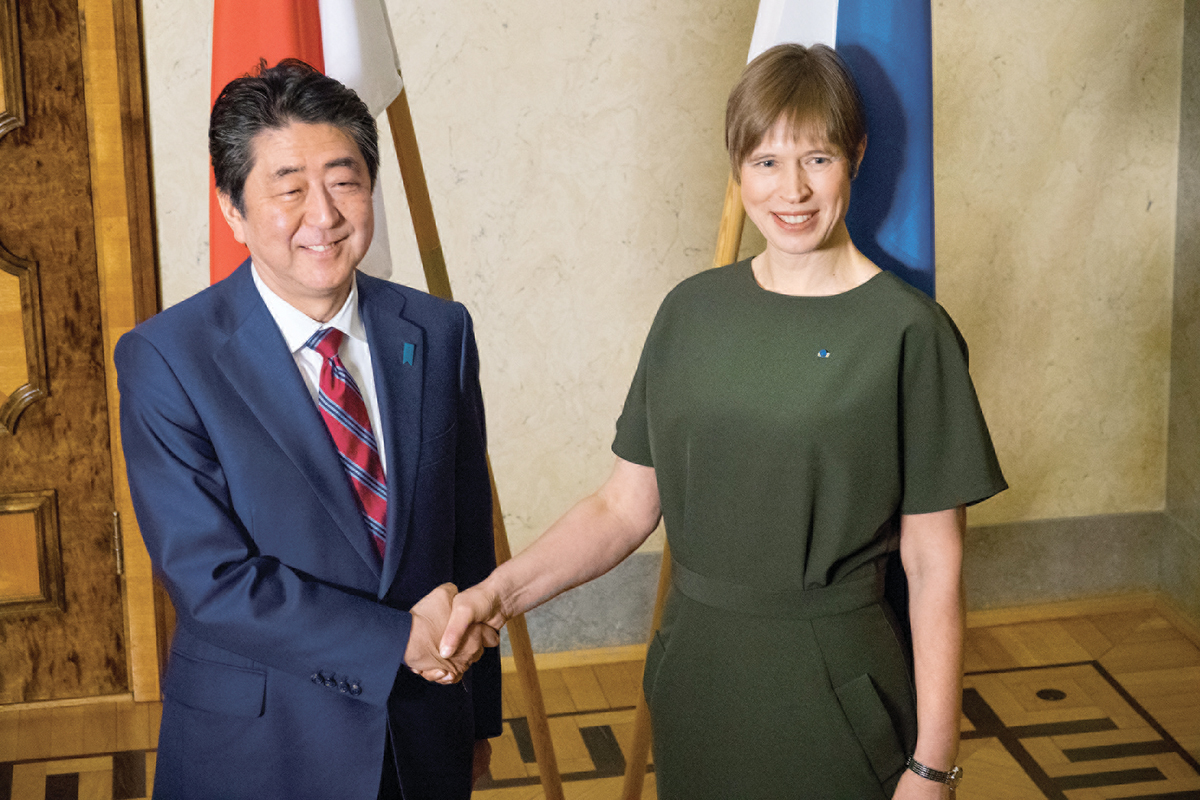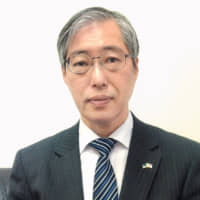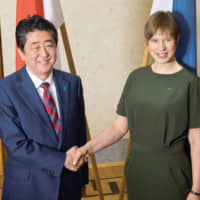Estonia has made headlines around the globe. With the adoption of internet voting during the most recent European Parliament elections, the Baltic republic of 1.3 million citizens has further strengthened its reputation as a pioneer in online governance.
Complementing its efforts to increase connectivity in government and in business, Estonia has also developed the physical infrastructure that connects the country to its larger neighbors and the rest of the world.
Over the past few years, the capital’s Tallinn Airport and the Port of Tallinn have undergone major improvements in their facilities and technological capabilities to accommodate more tourism and trade. With the planned Rail Baltic project that will link the Baltic states, Finland and Poland, Estonia will further strengthen its position as an ideal launch pad into Europe.
Ahead of the centennial of the establishment diplomatic relations this year, Japanese Prime Minister Shinzo Abe flew to Estonia in January 2018 to meet with President Kersti Kaljulaid. During the visit, the two leaders identified new areas for cooperation, such as cyberdefense, and reaffirm their commitment to free trade.
“The most notable thing discussed with the prime minister is that we share common democratic values, which we continue to stand up for globally. We are united in this discussion, and we care about the security of each other’s region,” Kaljulaid said.
Following the visit, Japan’s Charge d’Affaires Hajime Matsumura expressed his optimism about the future of bilateral ties. “We expect further deepening of Japan-Estonia relations in the fields of politics, the economy and culture,” he said.
With the highest number of unicorn startups per capita in the world, the country has attracted a lot of global attention for locally developed innovation, especially in the fields of IT and cybersecurity.
Additionally, Estonia set up the e-Residency and Startup Visa programs that will allow more Japanese to invest in the country and collaborate with local digital entrepreneurs.
“It’s easy to cooperate and find each other. The Estonian economy is very modern and, while small compared to the rest of the world, we have proven that we can do global business well,” Estonian Chamber of Commerce and Industry Director Mait Palts said.
One of the most significant partnerships is that between Estonian private equity firm Baltcap and the Japan Bank for International Cooperation.
“We are happy that Japanese investors have found the region and that our investor base has now become more diverse,” Baltcap CEO Peeter Saks said.
Behind Estonia’s accelerated digital transformation are its schools and universities, which have displayed adept adaptability to nurture a new breed of entrepreneurs, scientists and engineers making significant contributions to the development of e-Estonia.
“The Estonian cyberhighway was partly born at Taltech. We contribute to it and this continues to be one of our high points. Estonia is able to run fast and change course, if need be. We are dynamic, experimental and willing to share our experience with all partners,” TalTech Rector Jaak Aaviksoo said.
Among the Estonian startups that received Japanese investment are language application Lingvist, which received funding from Rakuten, and job recruitment platform Jobbatical, which obtained investment from Mistletoe Inc.
Meanwhile, the country has also seen the development of the Ülemiste Smart City, Tallinn Creative Hub and co-working space Lift99, all of which anticipate an influx of new companies, both local and international, wanting to take advantage of Estonia’s growth.
In its more traditional industries, Estonia has seen increased interest from Japan, particularly among the timber, wood product and prefabricated timber–framed house sectors.
“In Estonia, we have handmade log houses that are still standing after 300 years. We have a long tradition of building with timber. I feel that our values are very similar with those of the Japanese. I also feel that Japan appreciates the Nordic way of life and design,” Nordic Houses CEO Argo Saul said.
With the recent implementation of the EU-Japan Economic Partnership Agreement in February, many Estonian food and beverage companies got much-needed access to a large market with distinctive tastes and exacting standards.
Were it not for the free trade agreement, small global players like dairy product maker Tere and food and drink company Salvest could not dream of selling their goods thousands of miles away. The same can be said for Magnum, a homegrown wholesaler and retailer of pharmaceutical products.
“We are very much interested in working with Japanese partners in the areas of pharmaceuticals, cosmetics and even our pet care brand,” said Magnum CEO Ahti Kallikorm.
For large global companies, like Toyota, markets like Estonia and the Baltic region are just as important because they play a unique role in building their global brand, aside from improving business for the parent company. The Japanese car giant also found an ideal brand ambassador in the country: world rally champion driver Ott Tänak.
“We found strong local partners and resources to develop the brand locally and according to the Toyota philosophy,” Toyota Baltic Managing Director Osvaldo Valentini said.







